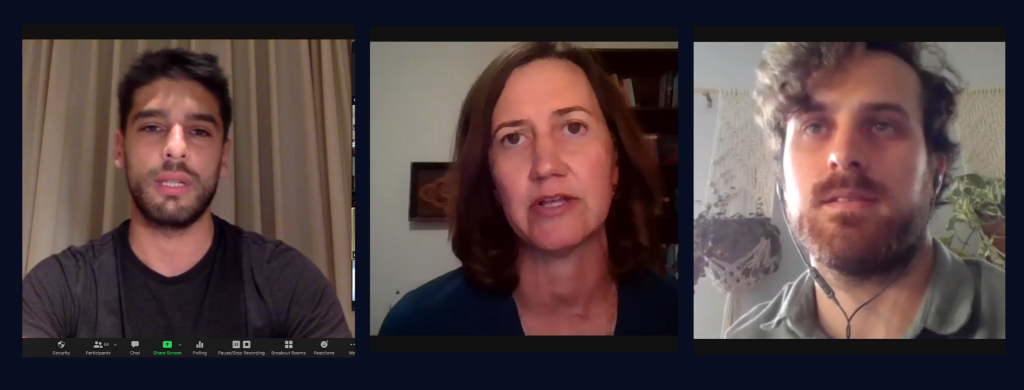
MAAS alums discuss their work related to the pandemic during a virtual panel
By Maddie Fisher
In November, CCAS hosted “The Impact of COVID on Humanitarianism and Development in the Arab World,” an online event about how the COVID-19 pandemic is shaping both development initiatives across the region and humanitarian aid needs in conflict-affected areas. The event was held in coordination with Professor Fida Adely’s “Development in the Arab World” course. The three panelists were all MAAS alums who work with international organizations and governments responding to the COVID-19 crisis. The speakers were asked to speak about how their work and the work of their organizations has been shaped by the pandemic. Each reflected on both the immediate response to this unforeseen global crisis and the ways humanitarian and development organizations are adapting and determining best practices as they continue to provide aid and push for reforms. On a wider scale, panelists shared how they anticipate the pandemic to alter the international landscape of humanitarian and development work in a world beyond the Coronavirus crisis.
Ghazi Bin Hamed (MAAS ‘16) works as a researcher and speechwriter for the office of HRH Prince Hassan Bin Talal, and as a consultant with the West Asia North Africa Institute in Jordan. He spoke about how even though people of all backgrounds are affected by the pandemic, it is the most vulnerable populations in the region who will feel its lasting effects long after there is a widespread vaccine. “Whether in the Arab world or elsewhere, if we are ever to move away from vulnerability and insecurity towards real security and stability, the common good must outweigh self-interest and profit at any price,” Bin Hamed remarked.
Dickie Fischer (MAAS ‘16) is a program officer with Jesuit Refugee Services who works on projects in the Arab world and globally. Fischer shared his perspective on working with a small NGO that relies heavily on relationships with local partners to continue delivering aid, despite lockdowns and evacuations, to those in need. In looking at ways the sector will be different moving forward, he pointed to how local staff and field offices have been taking the lead to adapt programs after expatriates have left. He said this challenges traditional notions of Western expertise as we see the importance of localized knowledge.
Kari Jorgenson Diener (MAAS ‘03), the Jordan Country Director for MercyCorps, shared insights on “how the COVID pandemic is a crisis layered on top of crises that were already here, such as the economy, low levels of participation in governance, and gender inequality.” Jogenson Diener unpacked how MercyCorp was responding to each of these crises before COVID-19, as well as how the pandemic has added additional stress to underlying key development challenges in Jordan.
You can watch a video of the full event on the CCAS YouTube Channel.
Maddie Fisher is the CCAS Events Coordinator and a first-year student in the MAAS program.